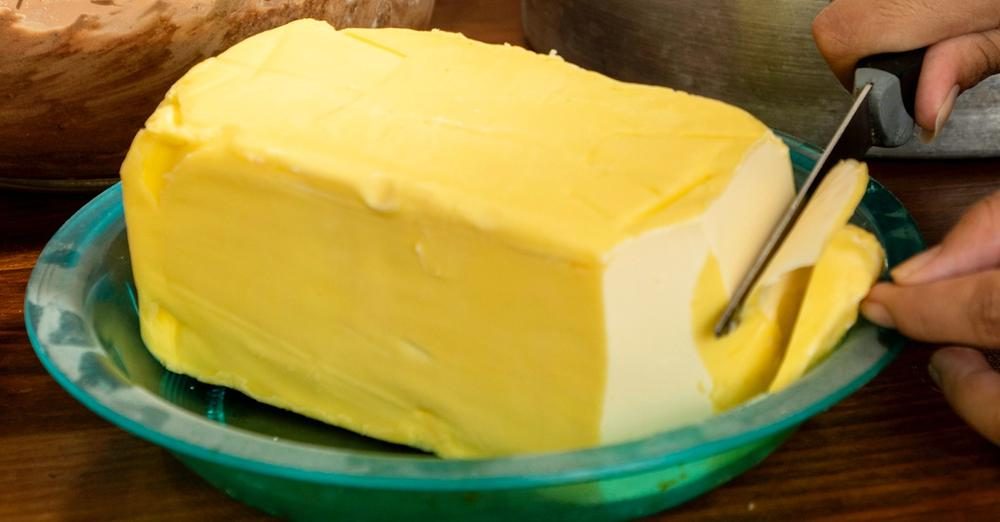What You Must Know Before Leaving Your Butter Out On Your Kitchen Counter
Butter is commonly identified as one of the household items that should be refrigerated to prevent spoilage. But, most times, this isn't actually the case. You can leave butter out on your kitchen counter for a few days but there are two important things you must know first.
;)
The subject of leaving butter out at room temperature is still widely contested. While butter left at room temperature is much easier to eat, it may not always be the best thing to do when you consider that it may now harbour harmful microbes.
However, experts say this is safe to do but only when you know that there are two important roles to doing so.
1. Pasteurized butter can be kept at room temperature

A 2003 study by the FDA reports that pasteurized butter, both salted and unsalted, does not grow bacteria like other common dairy items.
That's because the pasteurization process eliminates bacteria in the butter and the churning process that follows immediately changes butter into a solid state. Along the way, the water molecules in butter become separated by fat, which is almost impenetrable to bacteria. This prevents microbial growth. Salted butter is even better protected because the salt contributes to its stability.
Therefore, you can leave your butter out at room temperature and not worry about its safety for consumption — just make sure it's pasteurized! They are most commonly sold in grocery stores.
2. Butter goes rancid if left for too long on the counter

Butter becomes rancid when exposed to heat, light, or air, which causes the fat to oxidize. Even when pasteurized, butter might become rancid, losing its quality taste and freshness if you leave it on your kitchen counter for too long. In addition to becoming rancid, pathogens in the butter begin to multiply, posing danger to your health if consumed.
So, although eating rancid butter won't kill you, you still shouldn't eat it. Even better, you can totally avoid this by keeping butter in an airtight container and in your refrigerator. Also, only keep a small chunk of butter on your counter at a time. That way, you'll always have some soft butter to use and lower the chances of wasting them.
TIP: when you're unsure whether your butter has gone bad, take a whiff of the butter. If bad, it'll smell stale or just off. It will also develop a shiny oily outer layer that looks a bit different than the inside. Then it's time to chuck it and start with a fresh stick."
;Resize,width=767;)
;Resize,width=712;)
;Resize,width=712;)
;Resize,width=712;)
